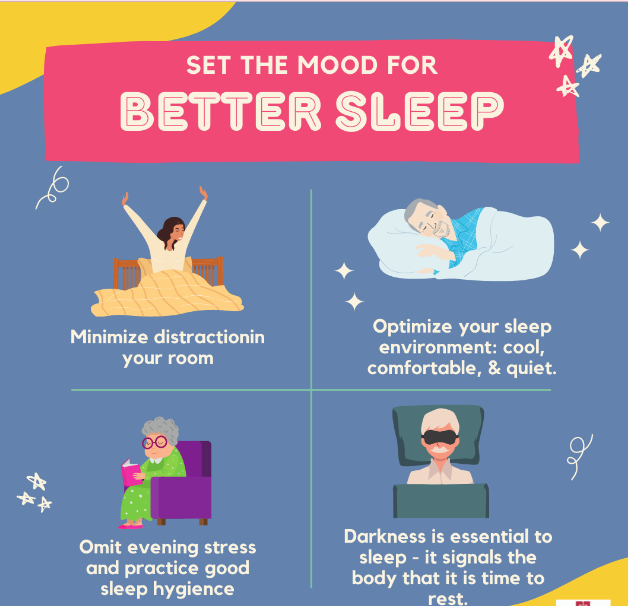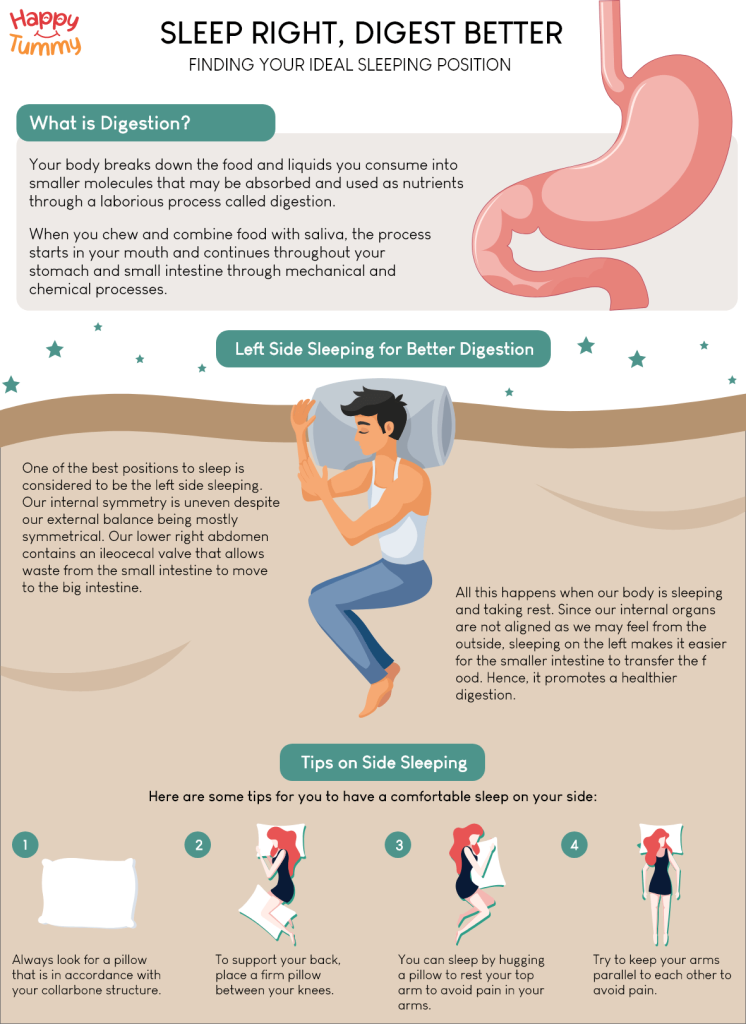Introduction
Sleep is crucial for our overall well-being and happiness. Lack of sleep can lead to a variety of health issues, including decreased immune function, weight gain, and mental health problems. In this article, we will discuss some tips on how to improve your sleep quality and ultimately feel happier in your daily life.
Establish a bedtime routine
Creating a bedtime routine can help signal to your body that it’s time to wind down and prepare for sleep. This can include activities such as reading a book, taking a warm bath, or practicing relaxation techniques like deep breathing or meditation. By consistently following a bedtime routine, you can train your body to associate these activities with sleep, making it easier to fall asleep and stay asleep throughout the night.

Additionally, try to go to bed and wake up at the same time every day, even on weekends. This can help regulate your body’s internal clock and improve the quality of your sleep over time. Avoiding stimulants like caffeine and electronics close to bedtime can also promote better sleep quality.
Create a comfortable sleep environment
Your sleep environment plays a significant role in the quality of your sleep. Make sure your bedroom is dark, quiet, and cool for optimal sleep conditions. Invest in a comfortable mattress and pillows that support your body’s natural alignment. Consider using blackout curtains or a white noise machine to block out any distractions that may disrupt your sleep.

Limit the use of electronics in the bedroom, as the blue light emitted from screens can interfere with your body’s production of melatonin, a hormone that regulates sleep. Instead, opt for reading a book or listening to calming music before bed to help relax your mind and body.
Practice relaxation techniques
Stress and anxiety can significantly impact your ability to fall asleep and stay asleep throughout the night. Incorporating relaxation techniques into your daily routine can help calm your mind and body, making it easier to drift off to sleep. Try techniques such as progressive muscle relaxation, deep breathing exercises, or meditation to reduce stress and promote relaxation before bedtime.

Engaging in regular physical activity can also help reduce stress and improve your overall sleep quality. Aim to get at least 30 minutes of moderate exercise each day, but avoid intense workouts close to bedtime, as this can make it harder to fall asleep. Yoga and stretching exercises can be particularly beneficial for promoting relaxation and improving sleep quality.
Healthy eating habits
What and when you eat can impact your sleep quality and overall well-being. Avoid heavy meals close to bedtime, as this can lead to indigestion and discomfort that may disrupt your sleep. Instead, opt for light snacks like nuts, yogurt, or fruit if you feel hungry before bed.

Limit your intake of caffeine and alcohol, as these substances can interfere with your sleep patterns and lead to poor sleep quality. Instead, opt for herbal teas or warm milk to help relax your body and promote better sleep. Eating a balanced diet rich in fruits, vegetables, whole grains, and lean proteins can also support better sleep and overall health.
Limit screen time before bed
The blue light emitted from electronic devices such as smartphones, tablets, and computers can interfere with your body’s production of melatonin, making it harder to fall asleep. Try to limit your screen time at least an hour before bedtime to allow your body to naturally produce melatonin and prepare for sleep.

Instead of scrolling through social media or watching TV before bed, consider reading a book, listening to calming music, or practicing relaxation techniques like deep breathing or meditation. Creating a screen-free bedtime routine can help signal to your body that it’s time to wind down and prepare for sleep, leading to better sleep quality and overall happiness.
Get natural sunlight exposure
Exposure to natural sunlight during the day can help regulate your body’s internal clock and improve your sleep patterns. Aim to get at least 20-30 minutes of sunlight exposure each day, particularly in the morning, to help boost your mood and energy levels. Natural sunlight exposure can also help regulate your body’s production of melatonin, making it easier to fall asleep and wake up at consistent times.

If you work indoors or live in a location with limited sunlight, consider using a light therapy box to simulate natural sunlight exposure. Light therapy can help regulate your body’s internal clock and improve your sleep quality by mimicking the effects of natural sunlight. Incorporating natural sunlight exposure into your daily routine can help improve your overall well-being and happiness.
Stay hydrated throughout the day
Dehydration can impact your sleep quality and overall well-being. Make sure to stay hydrated throughout the day by drinking plenty of water and other fluids. Avoid consuming large amounts of liquid close to bedtime, as this can lead to frequent trips to the bathroom that may disrupt your sleep.
Limit your intake of caffeinated beverages and alcohol, as these substances can dehydrate your body and interfere with your sleep patterns. Instead, opt for herbal teas, warm milk, or water to stay hydrated and promote better sleep. Incorporating healthy hydration habits into your daily routine can support better sleep quality and overall happiness.
Conclusion
Improving your sleep quality can have a significant impact on your overall well-being and happiness. By establishing a bedtime routine, creating a comfortable sleep environment, practicing relaxation techniques, maintaining healthy eating habits, limiting screen time before bed, getting natural sunlight exposure, and staying hydrated throughout the day, you can enhance your sleep quality and feel happier in your daily life. Prioritizing your sleep and making small lifestyle changes can lead to better sleep patterns, improved mood, and increased energy levels throughout the day.
FAQ
1. How many hours of sleep should I aim for each night?
Aim for 7-9 hours of sleep each night to support optimal health and well-being. Individual sleep needs may vary, so listen to your body and adjust your sleep schedule accordingly.
2. Is it okay to take naps during the day?
Taking short naps of 20-30 minutes during the day can help boost your energy levels and improve your overall alertness. Avoid taking long naps close to bedtime, as this can interfere with your ability to fall asleep at night.
3. What should I do if I have trouble falling asleep?
If you have trouble falling asleep, try relaxation techniques such as deep breathing, progressive muscle relaxation, or meditation. Avoid stimulating activities close to bedtime and create a calming bedtime routine to promote better sleep. If sleep problems persist, consider speaking with a healthcare provider for further guidance.